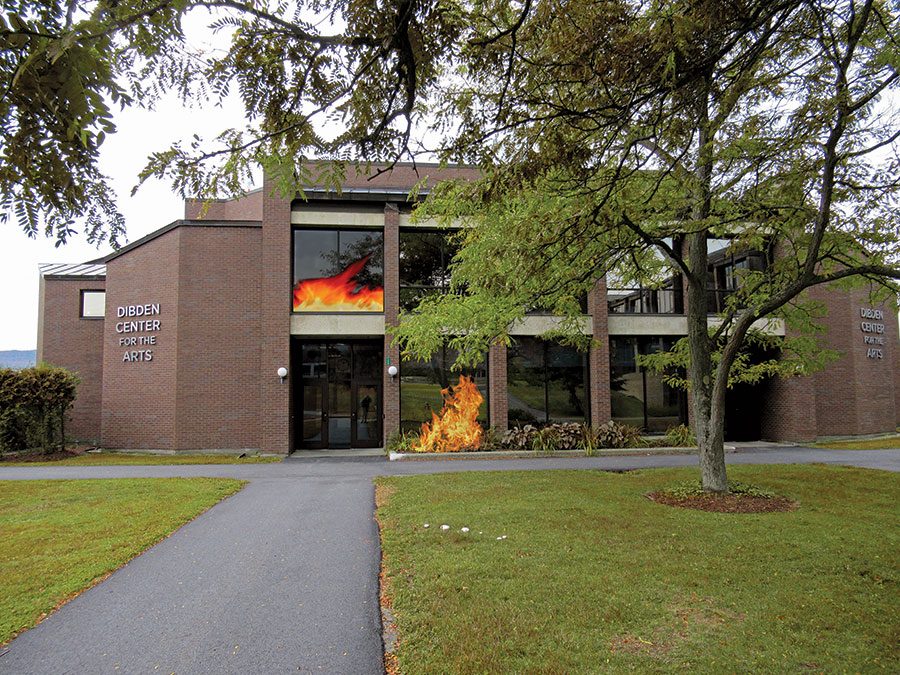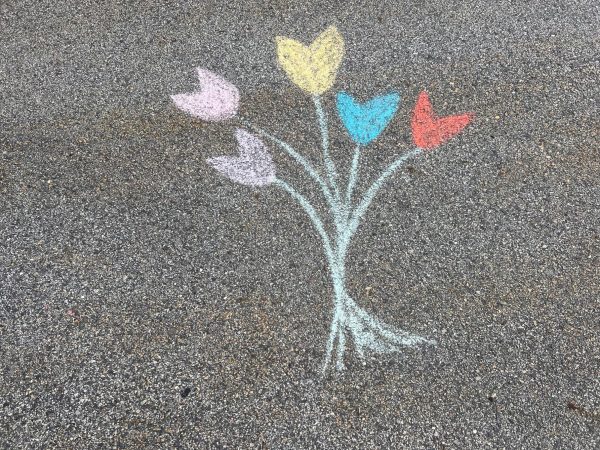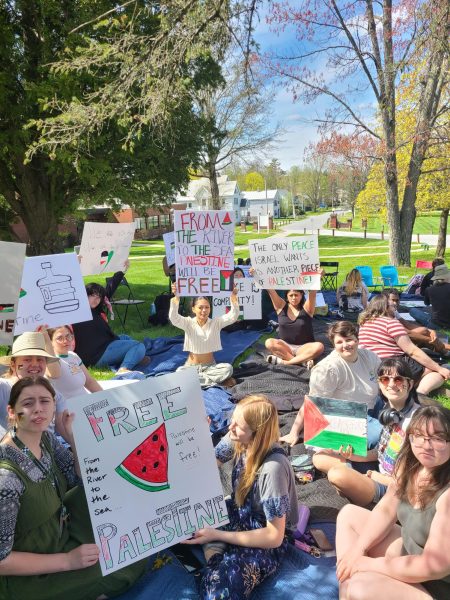Where is our shade?
It has become increasingly more frustrating to “go along with the flow” during unification.
Last week, at her State of the University address, President Collins showed the crowd all kinds of improvements that the university has made since unification. You can read all about that on page 2. She spoke briefly about the work students were doing that had been recognized externally, most of which were athletic achievements.
There were only two students that showed at the event, myself and a theater major, ReAnna Jean Adams. After Collin’s presentation, Adams asked why Collins did not mention the achievements of the theater majors and the arts in general here at Johnson.
Collins replied that she had personally supported the theater program, but that she had to cut a lot of the celebration pieces out in order to fit everything into one hour.
Adams’ question was a pointer towards a problem I think we haven’t addressed yet. There is all kinds of cool stuff going on in regards to unification, but for those of us whose majors haven’t embraced unification or whose benefits we won’t be here to see, unification feels like a frustrating mess.
Collins mentioned the work in student retention, and the new hire of Elaine Harvey, which you can read about on page 3.
Harvey will join the many people on campus who work towards student retention here at Johnson, but her position, which is funded by a Title III grant, may be nonexistent after the grant’s end. Plus, the hiring of Harvey comes just as a major powerhouse of the first-year program, Emily Neilsen, is leaving for the Restorative Justice center in Hyde Park. It’s lovely that Harvey is joining us, but Neilsen’s loss will certainly be mourned among those of us who were advised and supported by her. Neilsen’s position isn’t being filled after she’s gone.
How are we expected to retain students when the staff they love so much are leaving left and right?
It’s not just Emily, either. It’s Caitlin Wilkins, who leaves us for Lyndon’s res life program. She’ll be amazing there, but she was amazing here. It’s a shame that we won’t be seeing her as often, if at all.
Neither are professors’ positions being filled; Sharon Twigg, who left last year, was the Writing and Literature department’s foremost expert on British lit. Her position has stayed empty. The list of professors whose absences have not been filled is lengthening; Bob Genter, John Miller, Amy Welch, Bill Doyle and Karen Uhlendorf. Lisa Cline and Tania Bacchus will be leaving at the end of the semester, and Paul Silver will be leaving in May. What is going to happen to the sciences? What will happen with the humanities? How long will students have to wait for their majors to be staffed appropriately again?
How can we keep students if we can’t keep our professors?
It’s exciting to hear about the cool new stuff for business majors—their new telepresence rooms and travelling professors are two big perks for them. I’m not disparaging them, but where are those kinds of things for the arts and humanities? Our home, the library, isn’t open on Saturdays anymore.
I am excited for the future of NVU and the many students that will grace these halls after I am long gone. But I am not paying tuition for them. I am paying tuition for me.
Where is all the cool stuff we were promised? Where is the shuttle to Lyndon and the availability of their professors and classes? Where are the “opportunities” we were promised?
There has been no transparent conversation with students about the vision for our departments. With dwindling course availability, students are left in the dark. The meetings with Provost Atkins to explain the new organizational structure were badly publicized and during a time where students needed to eat lunch. When we brought up some of these issues at the meeting, his response was to the effect of, “I dunno, what do you think?”
Students are here to get an education and eat as many mozzarella sticks as can be consumed reasonably during a four-year period. (At least, that’s why I’m here.) Snacks aside, it’s important for administrators to take off their future-goggles and start looking at the students around them. We aren’t the future. We are the present, and we want to be seen.
College here is becoming less sustainable. What was advertised as a low-cost, high quality education is becoming less of the first. Departments didn’t inform their students about last May’s work/study and direct hire budget cuts for them to find appropriate, alternative work.
When I was employed by the school over the summer, I wasn’t informed until a week before my hours were cut by 20%. In one paycheck, I went from being comfortable to counting every penny. I am lucky enough to have a financial support system to rely on, but not every student has that option.
I’m not saying that I have all the answers, or that I know how to fix a frustrated system. But what I am saying is that there are real people here, students, whose lives hang on to college by a thread.
I understand that unification was never meant to be an immediate fix or success. Elaine, at her address, quoted an old proverb: “A society grows great when old men plant trees whose shade they know they shall never sit in.”
Where are the trees that Johnson State College planted for us? Is it the library that’s closed on Saturdays or the crumbling roads on campus? Is it the continually-exiting body of faculty and staff or the ever-increasing tuition cost?
I guess I’ll continue to wonder where my shade was supposed to be.
-Rebecca Flieder, editor in chief

Senior, Journalism & Creative Writing
Grew up in Atkinson, NH
Fall 2018
Along with traditional journalism, I enjoy writing satire and fun feature...






Winston Smith • Nov 29, 2019 at 2:31 pm
Too many chiefs, not enough indians. How about cut from the top 5% salaries and restore the cut services and faculty positions? Stop nickle and diming the faculty and professional staff while enriching the administrators.
Don’t think I am kidding! SERIOUSLY, look at what the top 5% administrators are being paid, and decide if that is a good reason for the student increased tuitions rates and loan debt you are being to be asked to take on (while classes you need to graduate are being cut, library hours are cut, and parking permit fees increase).
Winston
Seana Rowell • Nov 21, 2019 at 5:04 pm
Excellent, excellent points. More of this please!!